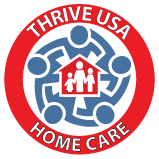When is it Time For Hospice Care?
Accepting aging can be a difficult process. Many older adults associate illness with loss of independence or becoming a burden on loved ones. This could explain why they don’t always tell you how they truly feel. It may be up to you to recognize the signs of deteriorating health and the need for specialized care. Understanding potential signs that the end is near reduces anxiety and allows you to honor the wishes of your aging loved ones.
Many families put off calling hospice until their loved one is in their final days or weeks of life. However, if the patient qualifies, they may be able to receive specialized care, medications, medical equipment, and supplies related to their terminal illness months earlier.
What is Hospice Care?
In comparison to many other types of medical care, hospice care is still in its infancy. The first hospice facility opened in London in 1967, and the first in the United States opened in 1974. However, hospice care has grown in popularity among many American families since then. More than 1.5 million people use hospice services each year, with more than 50% of deaths in the United States occurring while a person is enrolled in a hospice care program.
So, exactly what is hospice care? In contrast to other types of medical care, hospice care focuses on caring for a person who has a terminal illness rather than attempting to cure them.
Hospice workers focus on pain management while working with those who are terminally ill. They also make an effort to provide them with the emotional and psychological support they require during their final months, weeks, and days.
Furthermore, hospice workers can provide support to terminally ill patients’ families throughout the process. They can teach people how to properly care for their loved ones while also providing grief support and counseling.
Hospice care can be provided at home for families who do not want to place their loved ones in a hospice facility. However, in many cases, families find it too difficult to care for their loved ones on their own, which is when a caregiver comes in handy.

How do you know when it’s time to consider hospice care?
Here are some signs that it may be time to consider hospice care for your aging parent or loved one:
Treatment is No Longer Working
Treatment is no longer effective, and/or they do not want aggressive intervention.
If your aging parents or loved one is suffering from a terminal illness and their goals include comfort, time with loved ones, and improved quality of life, hospice care may be the solution. Hospice care, rather than curing the illness, focuses on pain relief and symptom management.
When a doctor determines that the patient’s life expectancy is six months or less if the illness progresses as expected, hospice care can begin. If your loved one lives longer than six months, the doctor can recertify the patient for longer periods of time. For eligible patients, hospice care is covered by Medicare, Medicaid, and the majority of private insurance providers.
Symptoms are Getting Harder to Manage
According to research, pain becomes more intense in the last two years of life, peaking in the last four months. Uncontrolled pain can cause other problems such as shortness of breath, restlessness, and anxiety. It can also prolong the process of bereavement for loved ones. Hospice care may be beneficial if you notice an increase in pain or other difficult symptoms such as nausea, vomiting, difficulty swallowing, or pressure ulcers that do not improve with treatment.
Multiple Hospitalizations
It is not uncommon for older adults to require hospitalization for one-time health issues, but recurring hospitalizations may indicate that it is time to consider home hospice care. If a loved one is frequently in and out of the hospital, hospice care with an on-call nurse may be a better option.
A Decline in Basic Functions
When a loved one struggles to wash their hands or put on a shirt, it can indicate a decline in their overall health. Their inability to perform basic daily tasks may frustrate them and place a strain on caregivers. Both of these issues, however, can be alleviated with hospice home care.
Furthermore, you may notice that your loved one has difficulty speaking or following a conversation, or that their hearing and vision aren’t what they used to be. Another common issue is the need to spend the majority of the day resting in a bed or chair.
Decrease in Communication
Reduced circulation, hearing and vision problems and other issues may impair your aging parents’ ability to speak and follow conversations. As a result, they may begin to withdraw from activities they enjoy and the people they love.
Feeling Overwhelmed as their Caregiver
Caring for a loved one is a full-time job that can be stressful and draining. Because the job does not allow for time off, you may feel overburdened and unable to provide the support you want to give. In situations like these, hospice can be a great way to relieve stress while also providing compassionate care to your loved one.
Start a Conversation on Hospice Care in Maryland
The decision to seek end-of-life care can be difficult for any family. Seeking appropriate hospice care for your loved one, on the other hand, can help them get the medical support and pain relief they require.
Our home-based hospice care services are designed to allow your loved ones to live with respect and dignity in the comfort of their own home in the Maryland and DC area. As you begin your journey, please do not hesitate to contact us with any questions or concerns you may have about this type of supportive care. Our staff is happy to assist you in determining whether or not our end-of-life care is appropriate for your loved one.


